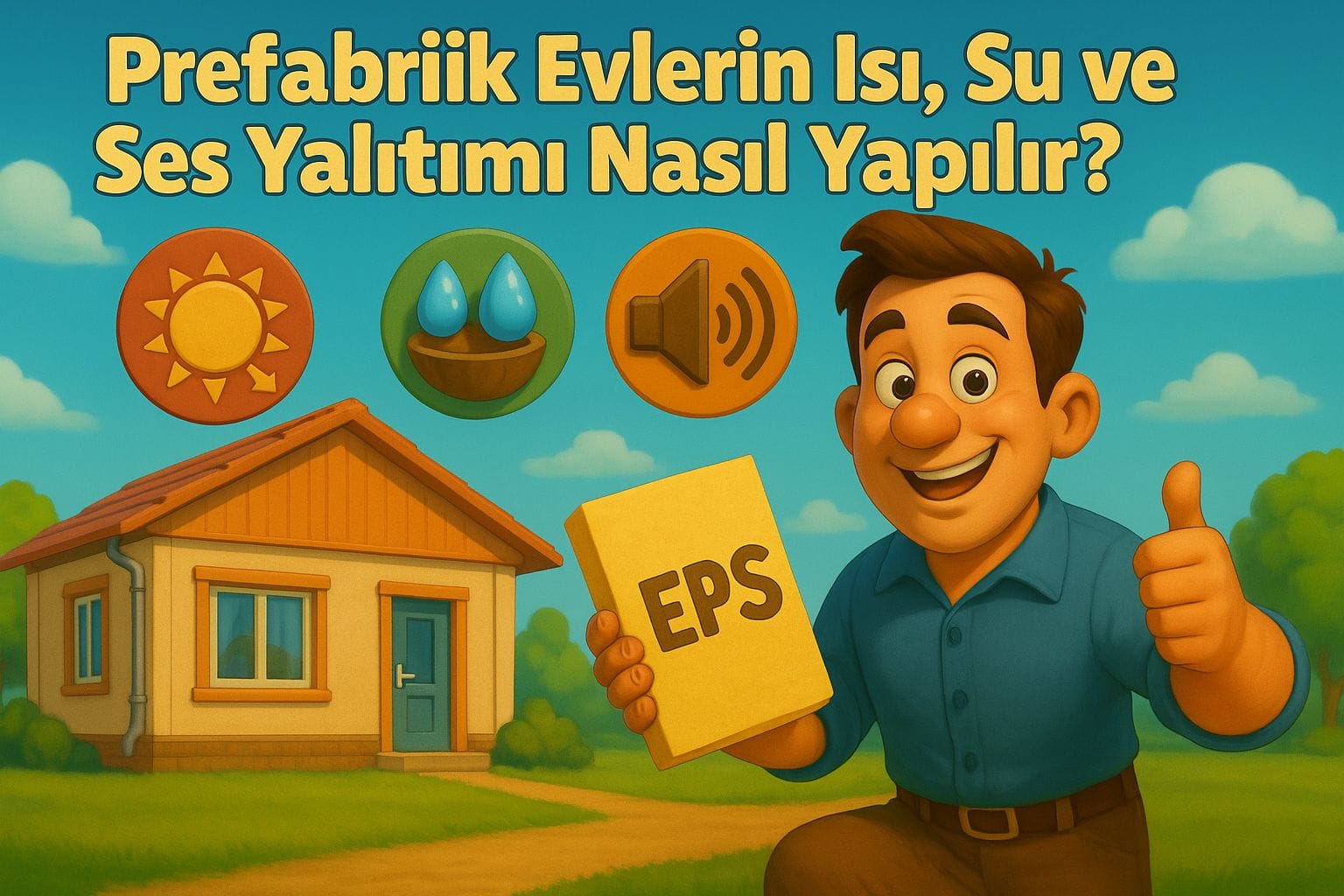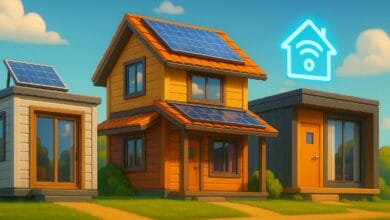Insulation and Energy Efficiency of Prefabricated Houses
One of the primary advantages of prefabricated houses fast and economical construction Another important element that supports the process is are three-layer insulation systems. Today, thanks to 2025 technology, these buildings have approached classical buildings in terms of comfort, sustainability and energy savings.
1️⃣ The Importance of Insulation and Its Relationship with Energy Efficiency
In addition to ensuring indoor comfort enerji giderlerini %30–50 oranında düşürme eğilimindedir. The manufacturing of prefabricated buildings in a factory environment, together with the sealing processes performed after assembly, keeps the insulation performance high.
2️⃣ Wall Insulation Layers: Material Choices
Steel carcass - carrier task
OSB / cemented panel - building surface and load-bearing
EPS / XPS / Rock wool / Glass wool - heat and sound insulation
Interior drywall - aesthetics and interior comfort
Exterior cladding (betopan, fibercement) - environmental protection and aesthetics
In this system, OSB and insulation layers minimize the heat loss of the house.
3️⃣ Roof and Floor Insulation
Roof Glasswool or polyurethane (PUR) insulation + sandwich panel
Flooring (underfloor): Polyethylene foil + insulation board + ventilated flooring system
On roofs with correctly applied systems U-value 0.39-0.45 W/m²Kon the walls. 0.34-0.45 W/m²K that have reached their values.
4️⃣ Luftsness & Tightness: The Secret to Energy Performance
As important as the sealing materials, the sealing of the connection details is also important. Prefabricated production method with factory buttstock and silicone gaskets after assembly:
Prevents air infiltration
Minimizes heat losses
Bu da %10–20 enerji tasarrufu sağlar.
5️⃣ Advanced Building Systems (SIPs / Prefabricated ADRY)
High-performance insulated panels (SIPs) and deep energy applications are now standard in modern prefabrication:
Continuous insulation layers
Prevention of Thermally Bridged bridges
Energy efficiency at passive house level.
6️⃣ Energy Sources and Additional System Integrations
Solar panels integrated on roofs to provide electricity/hot water.
Heat pumpsreduces energy consumption when used with underfloor heating systems.
Smart HVAC systemsoffers maximum comfort with minimum energy.
7️⃣ Performance Improvement with Implementation Principles
Correct orientation: Facade layout to optimize the sun
Environmental barriers: Natural shading such as trees, shrubs
CAM type: Triple glazing or A++++ energy label
8️⃣ The Importance of Regular Maintenance
Sealing and gaskets should be checked and renewed once a year
Exterior panels should be painted and maintained every 3-5 years
Keep solar panels clean and efficient
HVAC filters should be changed periodically
These maintenance maintains the home's energy-saving performance for a lifetime of up to 10 years.
9️⃣ Comparison Table: Insulated Prefab vs Standard House
| Criteria | Insulated Prefabricated | Reinforced Concrete / Wood |
|---|---|---|
| U-value (wall) | 0.34-0.45 W/m²K | 0.6-1.2 W/m²K |
| Annual energy savings | %30–50 | Reference level |
| Air insulation | Leak-proof production + silicone detail | Traditional |
| Insulation life | 50+ years (EPS/XPS) | 25-30 years |
| CO₂ emissions | %20–40 daha az karbon ayak izi | Reference |
10) Conclusion Comfortable, Economical and Sustainable Living
The prefabricated solutions of 2025 are now with high insulation value, integration of energy technologies and factory-controlled process:
✅ Offers comfort of use
✅ Reduces energy bills
✅ Reduces carbon footprint
With the right materials, applied details and system integrations, prefabricated buildings are not "temporary", green and lasting modern inns becomes.
prefabricated house insulation, energy efficient prefabricated house, insulated prefabricated building, EPS XPS sandwich panel, energy saving prefabricated house, sustainable housing 2025




